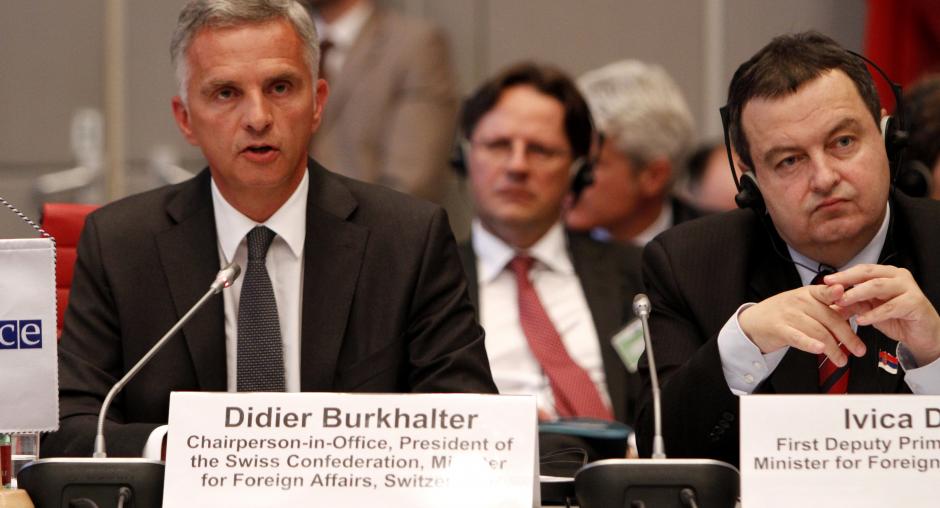Ukraine crisis tops agenda of OSCE annual conference in Vienna

VIENNA, 24 June 2014 – Strengthening the OSCE’s role in existing conflicts – particularly Ukraine – tops the agenda at the Organization’s annual security review conference starting in Vienna today, with discussions also covering military stability and transparency, transnational threats and Afghanistan.
Opening the conference, OSCE Chairperson-in-Office, President of the Swiss Confederation and Swiss Foreign Minister Didier Burkhalter outlined the role the OSCE – the world’s largest regional security organization – is playing in Ukraine, stressing work being done by the Special Monitoring Mission and calling for immediate and unconditional release of eight monitors from the Donetsk and Luhansk teams who have been missing since the end of May.
Reconsolidating European security should be the common project of the OSCE family, he said. The OSCE’s capacity to act in addressing conflicts can be strengthened and Switzerland was especially committed to growing the Organization’s potential in the field of mediation.
“The Ukraine crisis has amplified fissures in Europe that could be observed beforehand… The dynamics of the Ukraine crisis have been a painful reminder that peace and security in Europe cannot be taken for granted.
“We should collectively work to do three things: assist Ukraine in peacefully resolving the crisis, reconsolidate European security as a common project and strengthen the OSCE as an anchor of co-operative security,” he said.
Ivica Dačić, Deputy Prime Minister and Foreign Minister of 2015 Chair Serbia shared the need for the joint action: “ The ‘Helsinki+40’ process represents a framework for strengthening the organization and should not be neglected, but continued precisely because of the challenges we have been facing in the past months.”
The ‘Helsinki +40’ process seeks to provide political impetus to streamlining the work of the OSCE as it approaches 2015, the 40th anniversary of the signing of the Helsinki Final Act that paved the way for erasing dividing lines between the East and the West and contributed to the end of the Cold War.
“We should seize the opportunity, strengthen our dialogue, mutual engagement and come to broadly acceptable solutions in a constructive manner,” Dačić stressed.
OSCE Secretary General Lamberto Zannier also highlighted “traditional” politico-military security challenges.
“Strengthening arms control and confidence and security-building measures remains a long-term endeavor, and political commitments to efforts in this field should be upheld,” he said. “The arms control debate needs to be revitalized and broadened. The OSCE could play a significant role as an inclusive platform for dialogue that is unmatched by other organizations.”
Transnational threats, such as terrorism, organized crime and trafficking in illicit drugs and human beings posed a growing threat to the OSCE region, Zannier stressed. He also highlighted the OSCE’s continued targeted support to Afghanistan, where security remains precarious.
The OSCE Annual Security Review Conference bringing together a total of 400 participants will conclude on Thursday.
